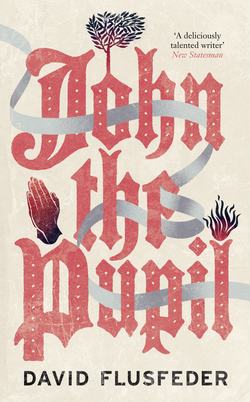Читать книгу John the Pupil - David Flusfeder, David Flusfeder - Страница 11
Saint Abran’s Day
ОглавлениеOnce I knew how to herd goats, to fetch water without losing a drop, to make myself small against my father’s anger. Now I have become skilled in the art of gliding through the refectory and kitchen, to pick up bread, to lean over candlesticks and slice off small segments at the base of the candles, and on through the building, to the stairs, my arms folded, hands holding my spoils in the sleeves of my cloak. Our scribe needs food to eat and light to work by.
It is harder to gather wine and beer. When I descend into the cellar, to tiptoe past sleeping Brother Mark, to lift away two bottles, to make my return journey past the sleeping sentinel, to climb back up into the corridor by the dormitory, I am almost as anxious as I used to be, when I first followed Master Roger’s instruction to fetch food for the scribe. I know that it is not stealing, he explained to me that it is not, but still I shake, and pray. I must take two bottles, because when Brother Mark makes his accounting of the cellar, he touches each bottle in turn, chanting, sing-song, Here is master bottle and here is his wife, here is master bottle and here is his wife … His reckoning is done by remembering whether there was an even or an odd quantity of bottles on the previous day.
The scribe bemoans as he transcribes. He is being made to work too swiftly. It is the word, not its shape, that matters, Master Roger tells him, urging him on, Faster! Faster! I have written in the Book, in a rougher hand than the scribe’s, because Master Roger did not trust the scribe to draw Hebrew characters without understanding. Maybe, somewhere, a family is missing its father, a mother her son. The scribe shapes an azure line in the margin, he cannot help himself, a turn of thin colour that suggests the tip of a wave, a leafy branch of a tree. He sharpens his pen and wipes his face and looks around, as if for escape. There is none. He is here until the Book is finished or the world has ended.
Or if the Principal discovers what Master Roger is doing in his room. There is an Interdiction cruelly upon him. He may not write or debate or disseminate, other than sequestered in the friary classroom with his appointed pupil. The Order suspects him of novelties, which is an accusation hardly short of heresy. Yet he may exchange letters with friends and outside patrons of influence whom the Principal and even the Minister General should not seek to offend. Master Roger’s rooms are turned into a single industry. It is all done in the utmost secrecy. The Book is secret, which is maybe as it should be. In antique times, Master Aristotle composed a commentary to kingship, power and wisdom for his pupil Alexander of Macedonia. Master Roger’s Great Work is the true successor to Aristotle’s Secret of Secrets. Many evils follow the man who reveals secrets, wrote Aristotle. The planets align, the Principal vexes, Master Roger writes the words on wax tablets for transcription, the scribe cuts them into the page. I steal a wheel of cheese from the cellar and draw an imaginary journey before picking up my own pen.
We live in the Last Days. All things are temporary. The gates behind which Alexander enclosed Gog and Magog are falling. The horsemen are already abroad. In which case, I asked my Master, why should he, should we, make so many terrible labours to produce his Book? It is a work of majesty, indisputably, a magnificence of learning and opinion and ingenious device, which tells of the world and how it is viewed and the arc of the rainbow and the movements of the stars and of health and immortality and engines of war, all manners of things that would seem miraculous were they not founded on observation and deduction and Scripture, but, even if it is finished, even if it is somehow delivered and received by its intended Reader, would it not be for nothing? All things are known to the angels. They should not need to read it. And, as it has been written, the spread of learning will itself hasten the End Times. My Master hit me across the head with his Greek Grammar and commanded me to read and memorise the declensions of forty-nine nouns. It was as if I had accused him of vanity and pride, and maybe, thoughtlessly, I had.
